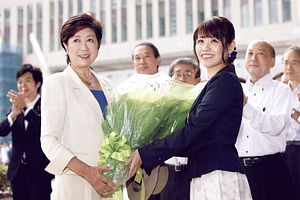Ever since Japan’s asset price bubble popped in the early 1990s, the country has struggled to recapture the dynamism that defined its swift post-war economic ascent. Japanese executives once hubristically aspired for their country to overtake the United States as the world’s largest economy. Those dreams died as what was initially somewhat optimistically described as a single “lost decade” became two. In December 2012, Japanese Prime Minister Shinzo Abe and his conservative Liberal Democratic Party came to power after the country had gone through three Democratic Party of Japan prime ministers in three years. Abe, unlike his predecessors, has enjoyed political longevity in Japan; he sought to use that stability to implement his eponymous set of fiscal, monetary, and structural policies, known together as “Abenomics.”
Abenomics, per the prime minister, has never been a purely technocratic agenda, agnostic to Japan’s socio-cultural circumstances. According to Abe, recalibrating Japanese gender dynamics, both inside and outside the workplace, is central to his economic plans. “Abenomics is Womenomics,” Abe declared, speaking at the 2015 World Assembly for Women in Tokyo. Since returning to office in 2012 after a sclerotic one-year prime ministerial term from 2006 to 2007, Abe’s administration has focused heavily on the circumstances of Japanese women.
Almost four years on, however, much work remains to be done in Japan on gender equality. The World Economic Forum’s annual gender equality rankings are one telling measure of the extent to which the Abe administration’s top-down efforts at reform in Japan have failed. In 2015, Japan’s ranking rose slightly to 101 out of 145 countries, placing it below several emerging and developing countries. In the 2016 rankings,though, Japan’s ranking declined to 111. The drop was mostly attributed to the gender gap among professional and technical workers in Japan, the Forum noted.
































